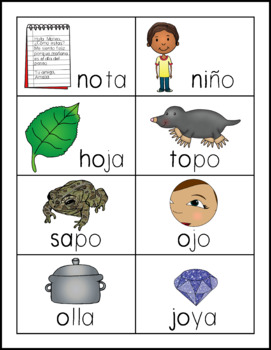Spanish Word That Start With O
1. Ocho (eight)
2. Otoño (autumn)
3. Oso (bear)
4. Ola (wave)
5. Oro (gold)
6. Orilla (shore)
7. Oportunidad (opportunity)
8. Organizar (to organize)
9. Orquesta (orchestra)
10. Oído (hearing)
11. Oliva (olive)
12. Opinar (to give an opinion)
13. Oferta (offer)
14. Ocupado (occupied/busy)
15. Observar (to observe)
16. Obrero (worker)
17. Oveja (sheep)
18. Orégano (oregano)
19. Obedecer (to obey)
20. Objeto (object)
21. Ojalá (hopefully)
22. Olvidar (to forget)
23. Olla (pot)
24. Oficina (office)
25. Ocupación (occupation)
26. Objetivo (objective)
27. Olimpiada (Olympic games)
28. Onza (ounce)
29. Onda (wave)
30. Oca (goose)
More About Spanish Word That Start With O
Welcome to another exciting edition of our Spanish language exploration series! Today, we will delve into the marvelous world of Spanish words starting with the letter “O.” Just like the other letters of the alphabet, “O” has its own unique collection of words that offer insight into the vibrancy and richness of the Spanish language. Whether you are a language enthusiast, a traveler planning to visit a Spanish-speaking country, or simply curious about expanding your vocabulary, this exploration is bound to leave you delighted and inspired.
The Spanish language is known for its elegance, melodiousness, and fascinating cultural history. With more than 460 million native speakers spread across several continents, Spanish is the world’s second-most widely spoken language. As you immerse yourself in the charming world of Spanish words starting with “O,” you will discover linguistic treasures that embody the distinctive flavors of Spain and Latin America.
Ojalá, a term often associated with the Spanish-speaking world, is a perfect example. This word, derived from the Arabic “Insha’Allah” (meaning “God willing”), beautifully encapsulates the cultural diversity and historical influences that have shaped the Spanish language. Ojalá is often used to express a fervent wish or desire, imbued with a subtle sense of hope and destiny. From prayers for the fulfillment of dreams to expressions of longing, Ojalá adds depth to the Spanish lexicon and reveals the intertwining of languages over centuries.
As we venture further into the realm of “O” words, one term that immediately captures attention is “olas.” This word, meaning “waves,” paints a vivid picture of the vast coastlines that lie along the mesmerizing shores of Spanish-speaking countries. With the crashing of waves against the shore, the word “olas” becomes an auditory representation of the beauty and power of the ocean. Imagine yourself strolling along a golden beach, listening to the rhythmic sounds of “olas,” and feeling the salty breeze on your skin. Such is the evocative nature of Spanish words, transporting our senses to far-off places.
Speaking of captivating imagery, “orgullo,” the Spanish word for “pride,” evokes strong emotions and has profound cultural significance. This term carries particular weight during festivities like Pride Month when the LGBTQ+ community celebrates their identities, achievements, and activist efforts. “Orgullo” represents both an individual and collective source of empowerment and serves as a reminder of the ongoing fight for equality and acceptance.
At times, exploring the world of Spanish words starting with “O” can lead us to unexpected places, like “olé,” a term that originates from the bullfighting tradition in Spain. From the bullring to flamenco performances, the exclamation of “olé” expresses enthusiasm and admiration for a sublime moment or exceptional talent. This interjection, woven into the fabric of Spanish art and culture, epitomizes the passion and liveliness that permeate the language.
As we conclude this introduction to enchanting Spanish words beginning with the letter “O,” we hope you are as excited and intrigued as we are to embark on this linguistic journey. Through the exploration of “Ojalá,” “olas,” “orgullo,” and “olé,” you will gain insight into more than just vocabulary. These words offer glimpses into history, culture, and the intricate tapestry of human emotions, showcasing how language is an integral part of our shared human experience.
Stay tuned for the upcoming articles in this series, where we will continue unearthing captivating Spanish words, each boasting its own unique story and charm. In the meantime, we invite you to immerse yourself in the beauty and wonders of the Spanish language, cultivating a deep appreciation for its linguistic gems and the cultures it represents. ¡Vamos a empezar esta aventura fascinante juntos! (Let’s embark on this fascinating adventure together!)
Spanish Word That Start With O FAQs:
Spanish word that starts with “O”:
1. ¿Qué significa la palabra “oso”?
El “oso” es un animal mamífero carnivoro.
2. ¿Cuál es el origen de la palabra “oficina”?
La palabra “oficina” proviene del latín “officina”, que significa “taller” o “lugar de trabajo”.
3. ¿Qué significa el término “obsoleto”?
“Obsoleto” se refiere a algo antiguo o desactualizado, que ha quedado fuera de uso.
4. ¿Qué significa el sustantivo “orilla”?
“Orilla” se refiere al borde o margen de un río, lago o mar.
5. ¿Qué es un “organismo”?
Un “organismo” es un ser vivo, ya sea una planta, un animal o un microorganismo.
6. ¿Cuál es el significado de “ordenador”?
En varios países hispanohablantes, “ordenador” es sinónimo de “computadora” o “computador”.
7. ¿Qué significa la palabra “oveja”?
Una “oveja” es un animal mamífero rumiante, similar a una cabra pero de mayor tamaño.
8. ¿Cuál es el significado de “obra”?
“Obra” puede referirse a una creación artística, al trabajo de construcción o a una acción realizada.
9. ¿Qué significa el término “oliva”?
“Oliva” se refiere a una fruta comestible, pequeña y ovalada, típicamente verde o negra, que se utiliza para producir aceite de oliva.
10. ¿Cuál es el significado de “ocupado”?
“Ocupado” se utiliza para indicar que algo o alguien está siendo utilizado o está ocupado, ya sea un lugar físico o la atención de una persona.










